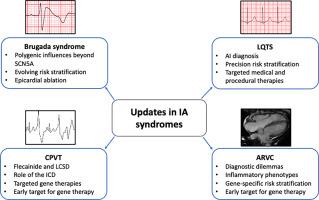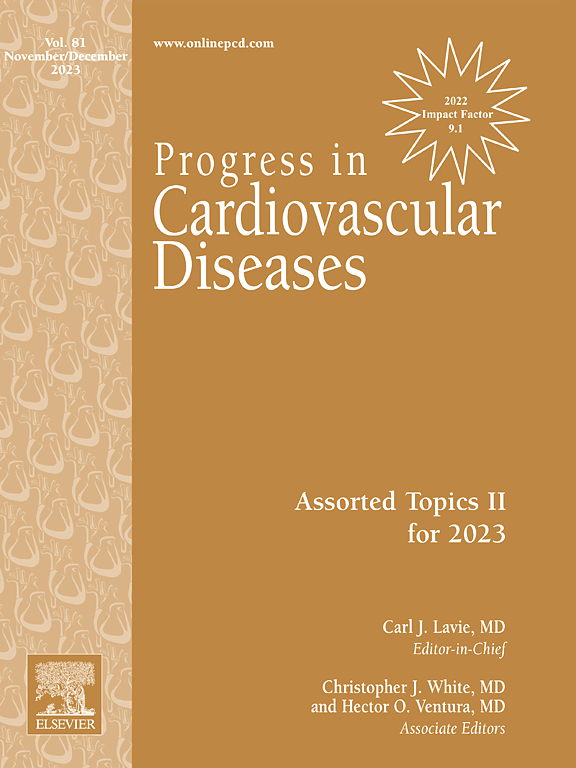Updates on inherited arrhythmia syndromes (Brugada syndrome, long QT syndrome, CPVT, ARVC)
IF 7.6
2区 医学
Q1 CARDIAC & CARDIOVASCULAR SYSTEMS
引用次数: 0
Abstract
The inherited arrhythmia (IA) syndromes are a group of rare and complex conditions that may predispose individuals to ventricular arrhythmias and sudden cardiac death. Our understanding of the genetic architecture underlying these syndromes has evolved, with recent reappraisals of variant pathogenicity and quantification of polygenic influences. The IA population includes an increasing proportion of low-risk patients, often identified via familial screening; avoiding over-treatment in these patients is an important consideration. Conversely, high-risk patients have an expanding armamentarium of targeted therapeutic interventions available beyond the ICD, with many emerging novel therapies. Refined risk stratification in the intermediate risk group is critical, utilising novel risk factors, genotype and multiparametric risk scores. Artificial intelligence will almost certainly play a role in diagnosis and risk stratification moving forward. Durable phenotype correction with gene therapy (or precision ablation) is an ultimate goal. This review will focus on updates in pathophysiology, diagnosis, risk stratification and management of Brugada syndrome, long QT syndrome, catecholaminergic polymorphic ventricular tachycardia and arrhythmogenic right ventricular cardiomyopathy.

遗传性心律失常综合征(Brugada综合征、长QT综合征、CPVT、ARVC)的最新进展。
遗传性心律失常(IA)综合征是一组罕见而复杂的疾病,可能使个体易发生室性心律失常和心源性猝死。随着最近对变异致病性的重新评估和多基因影响的量化,我们对这些综合征的遗传结构的理解也在不断发展。IA人群包括越来越多的低风险患者,通常通过家族筛查确定;避免对这些患者进行过度治疗是一个重要的考虑因素。相反,在ICD之外,高风险患者有越来越多的靶向治疗干预措施,有许多新兴的新疗法。利用新的风险因素、基因型和多参数风险评分,对中间风险组进行精细的风险分层是至关重要的。人工智能几乎肯定会在未来的诊断和风险分层中发挥作用。通过基因治疗(或精确消融)进行持久的表型校正是最终目标。本文将重点综述Brugada综合征、长QT综合征、儿茶酚胺能多形性室性心动过速和致心律失常性右室心肌病的病理生理学、诊断、风险分层和治疗方面的最新进展。
本文章由计算机程序翻译,如有差异,请以英文原文为准。
求助全文
约1分钟内获得全文
求助全文
来源期刊

Progress in cardiovascular diseases
医学-心血管系统
CiteScore
10.90
自引率
6.60%
发文量
98
审稿时长
7 days
期刊介绍:
Progress in Cardiovascular Diseases provides comprehensive coverage of a single topic related to heart and circulatory disorders in each issue. Some issues include special articles, definitive reviews that capture the state of the art in the management of particular clinical problems in cardiology.
 求助内容:
求助内容: 应助结果提醒方式:
应助结果提醒方式:


